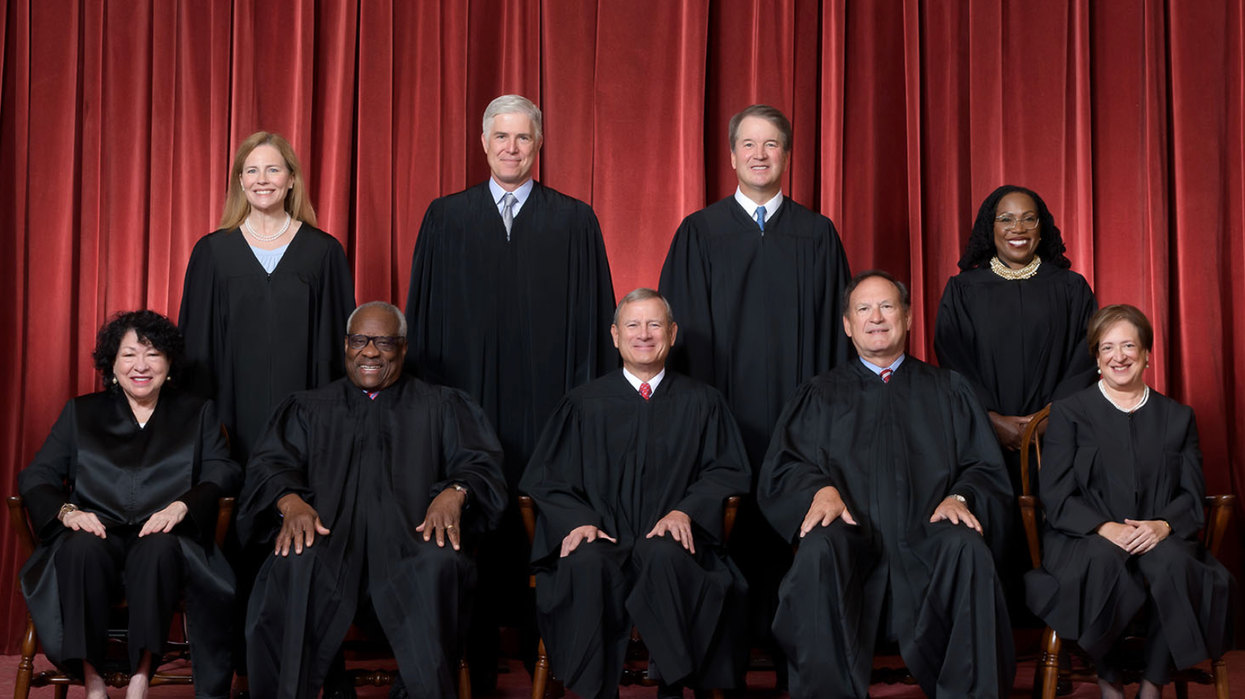Why the Supreme Court gutting affirmative action would be 'perverse': education expert

Supreme Court 2022, Image via Fred Schilling, Collection of the Supreme Court of the United States
January 16, 2023 | 09:45AM ETBank
Since the 1970s, conservatives have been using the courts to express their opposition to affirmative action. Now, the legal word is awaiting the U.S. Supreme Court’s ruling in two cases that challenge affirmative action programs at Harvard University in Cambridge, Massachusetts and the University of North Carolina at Chapel Hill.
In both cases, the plaintiff Students for Fair Admissions argues that admissions practices at those two universities discriminate against whites and Asians in favor of African-Americans and Latinos. The High Court has listened to arguments in both cases, and it remains to be seen how the justices will have to say about the plaintiff’s arguments.
Discussing the cases in an article published the Washington Post on January 16, journalist Valerie Strauss explains, “With Court watchers predicting a ruling against the universities this year, the question remains how broad that ruling will be. How will it affect other colleges and flagship state universities? Will the Court allow racial proxies that favor white students to stand while eliminating affirmative action programs aimed at bringing more minorities onto campuses?”
READ MORE: 'The wrong debate': Robert Reich takes aim at mainstream media's affirmative action panic
Strauss goes on to note what Kevin Welner of the University of Colorado, Boulder’s National Education Policy Center has had to say about the cases.
“Nobody has yet leaked the Supreme Court’s upcoming decisions concerning challenges to the affirmative action policies of Harvard and the University of North Carolina, as happened last year with a case that ended with the overturning of Roe v. Wade, which guaranteed women the constitutional right to abortion,” Welner writes. “But there’s no need for such a leak. We already know the decision, and as a practical matter, we’ve known it for years. Like a quarterback about to throw an interception, the Court has long been brazenly telegraphing its determination to declare affirmative action unconstitutional. Accordingly, on the late-spring day when the Harvard and UNC decisions are released, the sun will rise, and almost as predictably, six justices will be in the majority, voting to ban any consideration of applicants’ race or ethnicity.”
The U.S. Supreme Court tackled affirmative action back in 1978 in Regents of the University of California v. Bakke. The plaintiff in that case was Allan P. Bakke, who filed a lawsuit against the University of California, Davis School of Medicine after being rejected and argued that UC Davis’ admissions quotas were racially discriminatory. The California Supreme Court agreed with Bakke that he had experienced racial discrimination and ordered that the UC Davis School of Medicine admit him. In 1978, California was still a red state, and it was more conservative than it is now.
Then, when the Bakke case went to the U.S. Supreme Court, it upheld affirmative action as constitutional but ruled that the specific racial quotas were not. That was the Burger Court of 45 year ago, and since then, many conservatives have believed that the Burger Court was wrong to accept affirmative action at all.
READ MORE: What the fight over affirmative action is really all about
The Roberts Court is way to the right of the Burger Court, and as the Dobbs v. Jackson Women’s Health Organization ruling demonstrates, this is not a Court that prioritizes stare decisis (respect for precedent).
Welner doesn’t expect The Roberts Court to deliver affirmative action-friendly rulings, but he writes that there is still “an important element of suspense” as the decisions are awaited. And he is anxious to see what the Court will have to say about “factors strongly correlated with race, such as where students live and whether they grew up in poverty.”
“Proxies can be powerful tools,” Welner explains. “Knowing your zip code allows researchers to make an educated guess about, among many other things, your approximate wealth and income, as well as your likely race or ethnicity — and your school’s average test scores. It’s not just zip codes. Proxies are all around us. Republicans target their digital advertising at people who eat at Chick-fil-A and Cracker Barrel, and Democrats aim theirs at people who shop at Trader Joe’s and Whole Foods Market. For most of us, that’s not particularly troubling. But what if an insurance actuarial uses a zip code as a proxy for race — with higher car insurance costs in minoritized neighborhoods?”
Welner continues, “In fact, any time a policy or practice depends on where you live, the race-proxy emerges. More broadly, wealth and income are also race-proxies in the U.S., as is the school a child attends.”
Welner argues that it would be “perverse” to make the “use of race” in college admissions “totally impermissible.”
“There’s something extraordinarily perverse about this proxy discussion: In a society with a long and harmful history of racial discrimination that has massively impacted the distribution of resources and political power, laws and policies that are facially race-neutral will disproportionately and inequitably bestow benefits on white people,” Welner writes. “If a benefit is distributed based on neighborhood residence, on formal education, or on income or wealth, then white people will be relatively advantaged. And that advantage is an entirely predictable outcome of the nation’s long history of discrimination.”